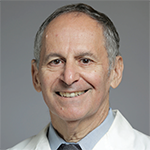 Jonathan Miner, MD, PhD
Jonathan Miner, MD, PhD
Instructor in Medicine, Washington University in Saint Louis School of Medicine, St. Louis
Background: When Dr. Miner launches his own lab in January 2017, it will be a dream come true. Of course, in those dreams, the words chikungunya and Zika had not come up until recently.
“But that’s why I love laboratory research,” he says. “Every day there is something new. Also, the connections among different fields of science are much greater than some people may appreciate. For example, many of the genes that were first discovered and characterized as anti-viral factors are now known to be very important in autoimmune diseases, like lupus.”
Dr. Miner finished his medical and graduate training at the University of Oklahoma College of Medicine and the Oklahoma Medical Research Foundation. That was followed by training in internal medicine and rheumatology at Barnes-Jewish Hospital and Washington University in Saint Louis. As a rheumatology fellow, he worked on viral pathogenesis and innate immunity in the laboratory of Michael Diamond, an internationally recognized expert in flavivirus and alphavirus pathogenesis.
Dr. Miner published four first-author papers describing patients with chikungunya viral arthritis, animal models of Zika virus pathogenesis and innate immune mechanisms that regulate blood-brain barrier permeability. His lab will continue that work and focus on innate immunity, mechanisms of viral arthritis and host-pathogen interactions in rheumatologic disease.
Q: What about the science of rheumatology appeals so much to you?
A: Above all else, I am driven by a desire to discover new things. My research has focused on viral pathogenesis, but my clinical training has allowed me to consider connections between pathogens, innate immune virus-sensing pathways and autoimmunity. Going forward, I think my training will allow me to define ways in which viruses may act to trigger autoimmunity, and also ways in which virus-sensing pathways may be inappropriately activated to cause rheumatologic disease.
Q: What was the experience like, working under such a well-known scientist?
A: When it came time for me to start my post-doctoral research training, I decided that mentorship was more important than the topic that I might end up studying. Instead of focusing my lab work on rheumatologic disease, I decided to do research with an infectious disease physician-scientist (Mike Diamond), who has helped me learn how to do rigorous basic science research on virus–host interactions. Training in Mike’s lab has given me tools that I will now to take to my own lab to open entirely new avenues of research.



